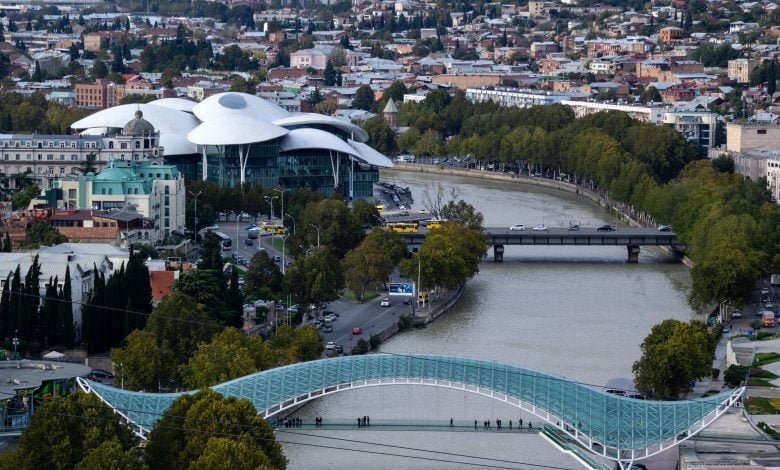
Poll Shows Georgian Attitudes on Economy, Democracy, COVID-19 Response
The new IRI poll has found that the economy continues to loom large among issues concerning the Georgian public, all the while belief in democracy as the best possible government for the country has decreased.
The lengthy public opinion survey tracks Georgians’ opinions on the most pressing problems facing their households and the country, the COVID-19 pandemic, and foreign policy issues among others.
Below are some of the key takeaways regarding the respondents’ values, as well as their opinions on economic troubles and the pandemic.
The poll was coordinated by Baltic Surveys/The Gallup Organization for the International Republican Institute (IRI) and the fieldwork was carried out by the Institute of Polling and Marketing during March 4-24 period through face-to-face interviews with 1,486 respondents and has a margin of error of plus/minus 2.5%. The survey was funded by the US Agency for International Development.
Economy remains top concern
Allowed to name the two most important problems facing Georgia, 40% of the respondents mentioned unemployment first, followed by 18% — the cost of living and high prices, 8% — external conflicts or war, while 5% named other economic troubles or the economy in general.
In total, unemployment ended up in 59% of the responses either as the first or the second mention.
Joblessness remained the top issue also on a local scale. Asked to name two most important problems facing their town or village, 33% of the interviewees named unemployment first, followed by high prices — 33%, infrastructure — 7%, poverty — 7% and water — 6%.
The economy was also the top issue for households, with half of the interviewees naming either cost of living or unemployment as their first mention.
Given the possibility to name three answers, 85% of the respondents named economic development as one of the biggest challenges for Georgia’s future. Bringing back the lost territories and unemployment were the two other top responses.

Noteworthy, 76% of the interviewees said that the state of the economy has regressed over the past year, while 6% noted it progressed and 16% argued it remained stalled.
Education was the only other issue that the majority of the people (56%) argued regressed over the past year. Meanwhile, 32% and 32% of the respondents argued that media independence and freedom of expression, respectively, progressed over the year.
Belief in Democracy Dips
The poll results showed that the share of the respondents who believed democracy is the best possible form of government for Georgia dipped from 77% in June 2021 to 64% in March 2022.
Against this backdrop, the share of those who believe there are other forms of government “equally good for our country” hiked from 11% to 21%.
The share of the respondents who are strongly or somewhat satisfied with the current state of democracy in Georgia has also increased in the same period, from 45% to 53%.

An overwhelming majority (71%) of the public said that Georgia’s politics are moving more toward polarization, also increasing from 61% in June 2021.
Allowed to name multiple answers, 40% of the interviewees saw “certain political parties or politicians” quitting politics as an essential element for political reconciliation. Meanwhile, 38% named holding accountable the current and former officials who have committed crimes while in office.
Support for snap parliamentary elections as a possible path to political reconciliation was low, at 22%.
However, half of the Georgians were pessimistic that a lasting reconciliation between the ruling Georgian Dream and the opposition parties could occur. 26% of the interviewees said they found the reconciliation very unlikely, while 24% found it somewhat unlikely.
Against this background, only 39% found it either very or somewhat likely that a lasting reconciliation occurs. 9% said it was equally likely or unlikely to happen, while 12% either did not know or did not answer.
COVID-19
The survey found that 47% of the interviewees were not going to get vaccinated, as opposed to 43% who said they had already been immunized. Also, 2% said they would get vaccinated soon, while 4% said they would receive the jab after some time passed.
The poll showed that 64% of the public is either very or somewhat satisfied with the Government’s response to the COVID-19 pandemic. While the amount increased from 59% and 60% in February and June 2021, respectively, it has fallen from the high of 79% reported in June 2020.
Also, those who were very satisfied with the response to the pandemic amounted to 41% of the interviewees in June 2020, with the number dropping to 13% a year later. Since June 2021, the amount of very satisfied people has risen to 17% in March 2022.
Also Read:
- Political Ratings, Institution Rankings in IRI Poll
- Poll Shows Georgian Attitudes Over Russia, Ukraine, Foreign Policy
This post is also available in: ქართული Русский